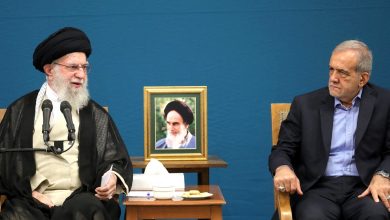The Israeli Knesset passed the first reading of a controversial bill on Monday that would allow for the death penalty to be imposed on Palestinian prisoners convicted of what it defines as acts of terrorism resulting in the death of Israeli citizens. The bill, which has sparked widespread condemnation, passed with a vote of 39 in favor and 16 against.
According to the Israeli Broadcasting Corporation, the session was marked by heated exchanges, including a near-physical altercation between Arab lawmaker Ayman Odeh and far-right National Security Minister Itamar Ben-Gvir.
The legislation was introduced by the Otzma Yehudit (Jewish Power) party, led by Ben-Gvir, who has been a vocal proponent of the death penalty for Palestinian prisoners. Ben-Gvir urged all coalition parties and Zionist opposition parties to unanimously support the bill, calling it a “historic step.”
Last week, the Knesset’s National Security Committee voted in favor of the bill, which will become law after passing its second and third readings. The bill stipulates that individuals who intentionally or through indifference cause the death of an Israeli citizen, driven by racism, hatred, or the intent to harm Israel, should face the death penalty. Furthermore, it prohibits any reduction of sentences for those convicted and sentenced to death.
Ben-Gvir had previously threatened to withhold his party’s support for the governing coalition if the bill was not brought to a vote within three weeks of the Knesset’s winter session opening. He has consistently called for legislation allowing the execution of Palestinian prisoners held in Israeli prisons.
Since assuming his role, Ben-Gvir has significantly tightened the conditions of imprisonment for Palestinian prisoners, leading to increased reports of abuses and denial of rights. These measures include restricting visitation rights, reducing food rations, and limiting access to showers, according to various human rights organizations.
The passage of the bill’s first reading comes amidst ongoing concerns regarding the treatment of Palestinians and accusations of disproportionate force used by Israeli forces in the occupied territories. Critics argue that the bill is discriminatory and violates international law. The bill now moves to the next stage of the legislative process.




